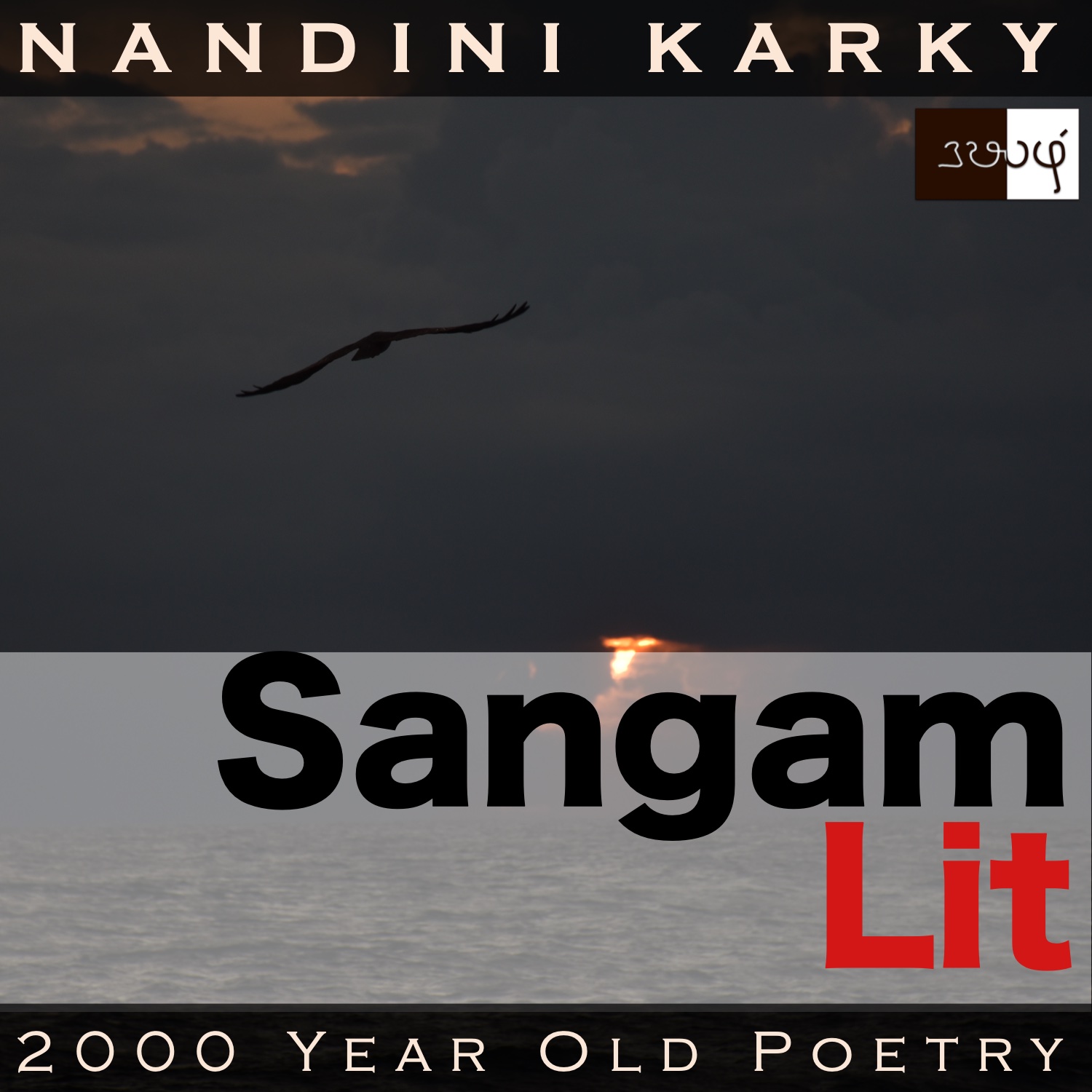Podcast: Play in new window | Download
Subscribe: Apple Podcasts | Spotify | Amazon Music | Android | iHeartRadio | TuneIn | RSS | More

In this episode, we learn of an ancient custom set in the midst of a lady’s anxiety, as depicted in Sangam Literary work, Kurunthogai 118, penned by Nannaakaiyaar. Set in the coastal regions of ‘Neythal’, the verse speaks in the voice of the lady to the confidante, lamenting about how the man had not returned to tryst with her.
புள்ளும் மாவும் புலம்பொடு வதிய
நள்ளென வந்த நார் இல் மாலை,
பலர் புகு வாயில் அடைப்பக் கடவுநர்,
‘வருவீர் உளீரோ?’ எனவும்,
வாரார்-தோழி!-நம் காதலோரே.
Sounds at sundown greet our ears in this one! The opening words ‘புள்ளும் மாவும் புலம்பொடு வதிய’ meaning ‘to make birds and animals feel lonely’ transfers the human feelings of loneliness on other life forms around. Unique is the phrase ‘நார் இல் மாலை’ meaning ‘loveless evening’ for in contemporary Tamil ‘நார்’ refers to ‘fibre’ or ‘rope’ and in ancient times, this word seems to signify ‘love’, perhaps in the poetic meaning of ‘a rope of attachment’. ‘பலர் புகு வாயில்’ talks about ‘a gate through which many enter’, about which we will explore shortly. Ending with the words ‘வாரார்-தோழி!-நம் காதலோரே’ meaning ‘he shan’t come, my friend, that lover of mine’, the verse resonates with a heart’s dejection.
Going beyond these glimpses of the evening, birds and doors, let’s move towards the full picture. The context reveals that the man and lady were leading a love relationship and the man was trysting with the lady for a long while. While the man seemed to be making no attempts to marry the lady, he was also kept away from seeing her for some reason. One evening during this time, the lady turns to the confidante and says, “For birds and animals to live in loneliness, came this loveless evening resoundingly. Before closing the gates through which many enter, the doorkeeper inquires, ‘Is there anyone who wants to come in?’ Even then, he arrives not, my friend, that lover of mine!” With these words, the lady expresses to her friend her sense of disappointment because the man had not turned up to meet her, on yet another evening.
Time to explore the nuances! By projecting her feelings of being abandoned by the man, the lady talks about how just to make birds and animals cry out in loneliness, dusk had fallen. And, the sun seemed to go down not silently but with the sounds of these other lifeforms that seem to pierce the lady’s heart. Even as the scene around changes, she still holds on to a hope. There seems to have been a custom in Sangam homes before closing the door in the evenings, to call out and ask if anyone waiting outside wishes to come into the house. Perhaps, the man sometimes used this ploy to enter as a stranger and tryst with the lady. That’s why she seems to have hoped he would come but even then, he did not, the lady concludes to her friend!
A simple verse that records the projection of inner feelings on the outer world, a dashed hope and an expression of that dejection! However, in these few lines, we get a glimpse of that ancient Tamil hospitality that seems to consider it as one’s duty to offer food and stay to strangers and wayfarers. We know this because, one, that gate is mentioned as a pathway through which many pass, and two, even before those open gates are closed, those inside wanted to ensure that no one was left outside, without food and support. Through that open gate at sunset, we not only sense the feelings in the lady’s heart but also gaze at the compassion and care of our ancient ancestors!




Share your thoughts...